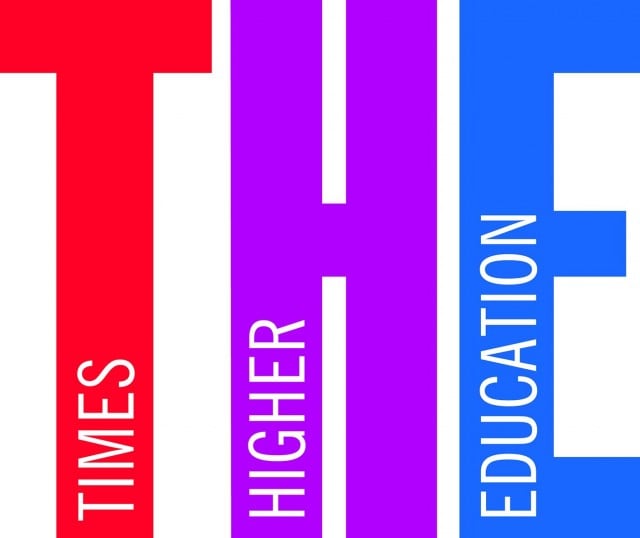Sydney’s heavyweight universities will put aside decades of “bickering” to increase their value to policymakers, according to the new head of Australia’s oldest higher education institution.
 University of Sydney Vice Chancellor Mark Scott intends to boost collaboration with the city’s other top-ranked institution, the University of New South Wales or UNSW Sydney, in a departure from their tradition of fierce rivalry. “Putting a premium on competition has held us back and the state itself has suffered,” Scott said.
University of Sydney Vice Chancellor Mark Scott intends to boost collaboration with the city’s other top-ranked institution, the University of New South Wales or UNSW Sydney, in a departure from their tradition of fierce rivalry. “Putting a premium on competition has held us back and the state itself has suffered,” Scott said.
“I suspect other states have lived for a long time on the happy assumption that the universities in New South Wales will not be able to get their acts together on this.”
Scott took up his role in July after five years at the helm of the NSW Department of Education. He had previously worked as an NSW ministerial adviser, media editor and decade-long managing director of the national broadcaster, the ABC.
“My experience on the inside in state government is that they do not want to have to choose between institutions,” he said. “They don’t want bickering or rivalry. What they want is a unified and cohesive solution to problem-solving.”
He credited success in establishing a “more collaborative culture” among universities — particularly the top-flight University of Melbourne and Monash University — and said the NSW government wanted to establish Sydney as an Asia-Pacific leader in research and technical expertise, particularly in medicine. “They are keen to partner with the university sector, if we can come up with solutions to develop that expertise in [fields] from mRNA to advanced manufacturing and everything in between.”
UNSW said it welcomed stronger collaboration, particularly in health research and healthcare. “Historically, perhaps, UNSW and the University of Sydney have not grasped the full potential of collaboration and the added value it brings for everyone,” said Vice Chancellor Ian Jacobs.
“The potential is sitting there to add value through partnership in health, where one has to say Victoria and Melbourne are ahead of Sydney and New South Wales.”
But Jacobs said the rivalry between the two universities, and overseas parallels such as Oxford and Cambridge, was often “seen in the wrong context.” While the Oxbridge contest stretched back centuries, it was “generally healthy” competition.
“In London, Imperial College, King’s College and UCL compete for resources and people. But they also come together when there are great things they can do working in collaboration [or when] equipment and resources need to be spread across the city. We have lots of good examples of that in Sydney, but I think we could do more.”
The Sydney-UNSW rivalry ranges from slurs in the institutions’ annual law reviews to the sometimes bitter competition between their corporate-backed quantum computing research centers. But Jacobs said the pair also collaborated in quantum physics, marine science and many other areas. “I suspect the largest number of partnership ventures each university has would be with each other.”
Scott said Sydney’s widely reported depiction as a “sandstone snakepit” — where he, as an academic outsider without a doctorate, was entering a nest of vipers — was also a mischaracterization. “It’s not a phrase that was in widespread vernacular,” he said. “I think it was created by a sub-editor. Great researchers and great teachers are passionate about their craft. They just want to get on with it, and I respect that.”
He said it would take a “brave person” to predict COVID-19’s impacts on universities or their finances. “Relatively few thought we’d be locked down in the second part of 2021, [or that] we would have vaccinated so few people by this time. It’s uncertain [and] it changes quickly.”
He said research funds would be impacted by declining international enrollments and by last year’s Job-ready Graduates reforms, which ended the cross-subsidization of university research from domestic teaching revenue.
“For decades now, that has been a source of research funding that now appears to be closed off,” he said. “This is a matter of national importance. The discovery of knowledge is going to be vital to the future of this country, our intellectual capital, the innovation of our industry and our global competitiveness, and we need to find a way of funding it.”
His university was Australia’s most enthusiastic participant in a post-2014 international student splurge, almost tripling its income from this source over the next five years. In 2020, despite the pandemic, it boosted these earnings by another 4 percent to more than A$1.1 billion ($811 million) — 17 percent more than it received from the federal government.
Scott said overseas students’ willingness to keep studying remotely reflected staff’s hard work and the strength of Sydney’s brand. “But it’s not over yet, by a long way. A year ago, Australia seemed open and many other international markets were closed. Now it’s almost the opposite. North American, European and particularly UK universities are willing to fully recognize prior coursework completed at Australian universities, and are trying to take advantage of the market. Under President Biden, [there] is a total rethink around the importance of international students as a strategic opportunity for the US, in a way that was clearly not evident under the previous president. We are watching it like a hawk.”
Stay connected with us on social media platform for instant update click here to join our Twitter, & Facebook
We are now on Telegram. Click here to join our channel (@TechiUpdate) and stay updated with the latest Technology headlines.
For all the latest Education News Click Here
For the latest news and updates, follow us on Google News.
